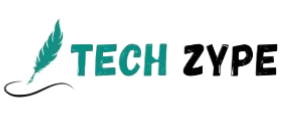Launching and managing a successful insurance agency requires more than just industry knowledge. It involves a combination of sharp business acumen, an understanding of modern technologies, effective marketing strategies, networking, and adherence to legal standards. Whether you are just starting out or seeking to enhance your existing operations, having the right resources at your disposal is crucial. Keep reading as we explore key tools, strategies, and tips to help you navigate the challenges and opportunities in the competitive world of insurance.
Essential Software Tools for Insurance Agency Management

Running an efficient insurance agency today almost certainly requires leveraging technology. Agencies must invest in robust Customer Relationship Management (CRM) systems to track client interactions and manage leads. Additionally, agency management software streamlines operations, from policy management to invoicing, ensuring that every aspect of the agency is optimized for success.
Cloud computing services are also nearly indispensable, as they allow for secure data storage and access from any location. This type of digital transformation not only enhances flexibility and productivity but also ensures that clients’ sensitive information is protected in accordance with industry standards for insurance companies. The adoption of cloud services aligns with the digital transformation in insurance, a crucial step toward future-proofing your business.
Furthermore, artificial intelligence (AI) is quickly becoming a game-changer, offering agencies predictive analytics and automated processes that can lead to more efficient decision-making. AI can help in customizing insurance packages for clients, identifying lucrative markets, and providing better risk assessment models, all of which contribute to the agency’s bottom line.
Understanding Legal and Compliance Requirements in the Insurance Industry
Staying on the right side of the law is non-negotiable in the insurance sector. Agency owners must ensure that their business practices adhere to state and federal regulations. Compliance requirements range from licensing and continuing education to ethical standards and consumer protection laws.
It is also essential to maintain accurate and accessible records of all transactions and interactions. Establishing protocols for documentation can protect your agency in the event of disputes or audits. Investing in compliance training for your staff can go a long way in preventing costly legal mistakes.
For financial regulations, tools such as a liquidity calculator can aid in maintaining the financial health of your agency. This is essential not only for compliance but also for ensuring that your agency remains financially robust in the face of claims or market fluctuations.
Developing an Effective Marketing Strategy for Insurance Services
The success of any insurance agency is deeply rooted in its ability to reach and engage with potential clients. Hence, developing a strong marketing strategy that encompasses digital marketing efforts is vital. An effective website, engaging social media presence, and targeted online advertising can differentiate your agency in a crowded marketplace.
Content marketing is another powerful tool. Creating valuable content such as blogs, e-books, and webinars can establish your agency as a thought leader and build trust with your audience. This strategy also improves search engine rankings, increasing the visibility of your services to those who need them.
Networking and Professional Development Resources for Agency Owners

Networking is crucial in the insurance industry. Joining professional associations can provide a wealth of benefits, including access to industry news, educational resources, and conferences. It’s essential to foster relationships with peers, mentors, and industry leaders, as these connections can lead to valuable learning and growth opportunities.
Professional development courses and certifications are also invaluable. They keep you and your team updated on the latest industry trends and best practices. Encouraging your staff to engage in continuous learning can improve the service quality of your agency and drive team motivation.
Maximizing Productivity With Time Management Techniques for Insurance Agents
Time management is critical for insurance agents who face a myriad of daily tasks. Prioritizing and structuring your day can significantly improve productivity. Start by identifying which tasks directly contribute to revenue generation and give those tasks precedence in your schedule.
Utilize task management applications to keep track of your daily, weekly, and monthly goals. These apps can help you organize your workload, set reminders, and even delegate tasks efficiently. Remember, successful time management often involves knowing when to outsource or automate repetitive tasks.
Setting clear boundaries between work and personal time is necessary for long-term sustainability. Insurance agents often operate in high-pressure environments, so maintaining a work-life balance can lead to better job satisfaction and performance. Clear boundaries also help prevent burnout, which can greatly affect work quality and client relationships.
Overall, running an insurance agency involves juggling various facets of business management. By harnessing the right technological tools, implementing intelligent marketing strategies, building a strong professional network, adhering to legal requirements, and maximizing time management, agency owners can position themselves for enduring success in a competitive field.
Also read about Home Insurance




